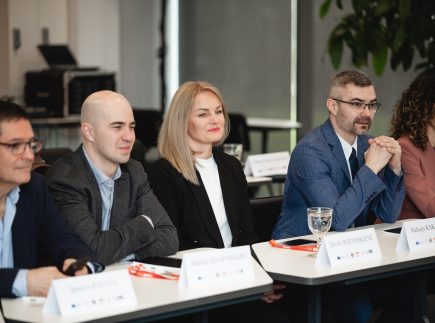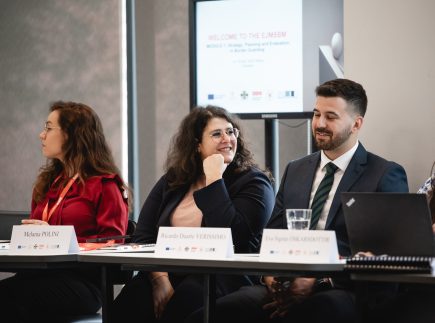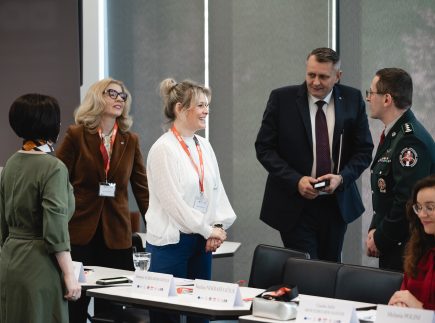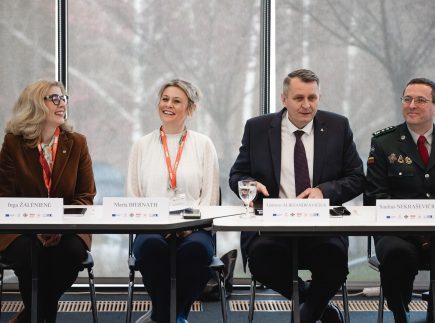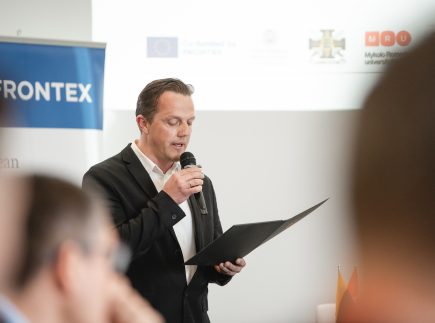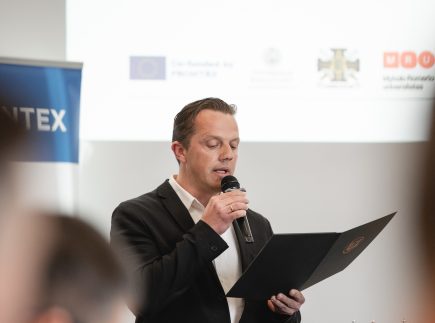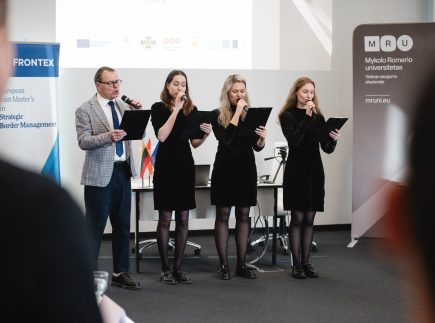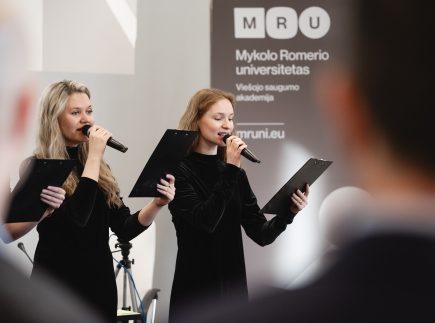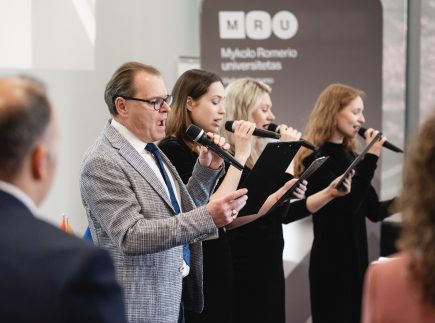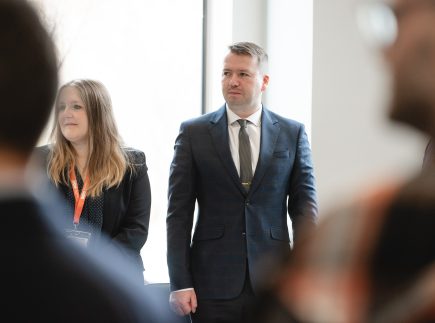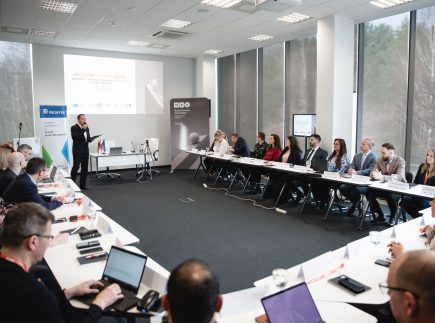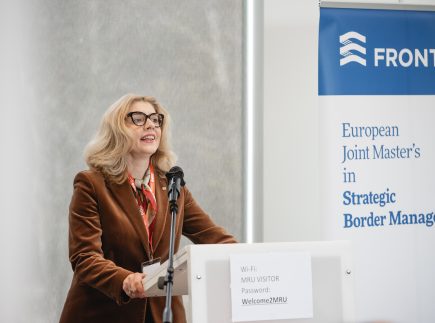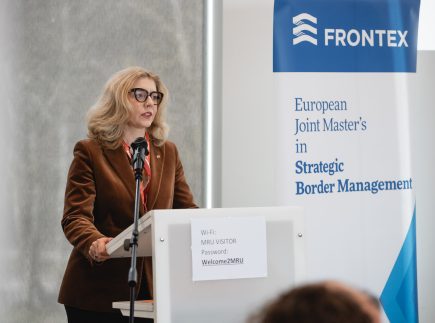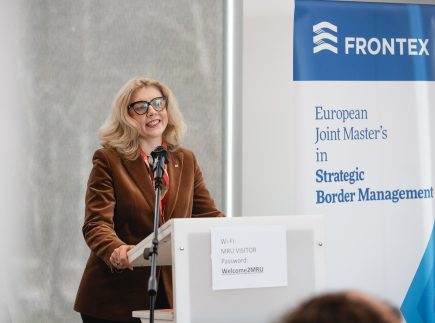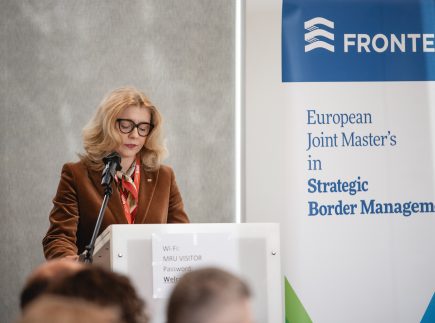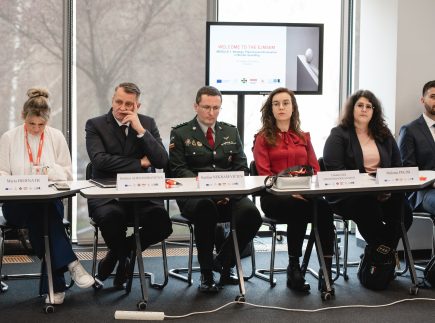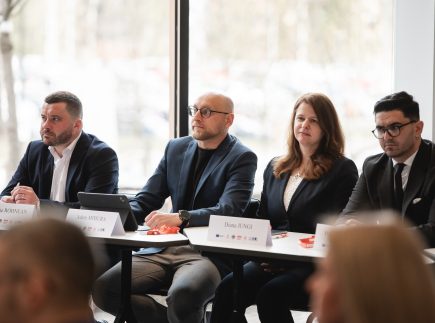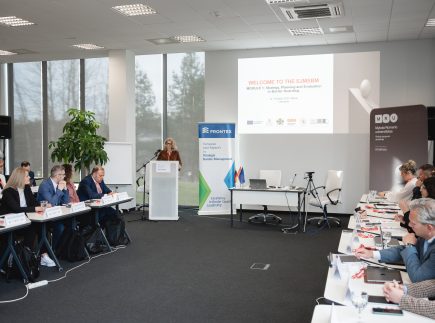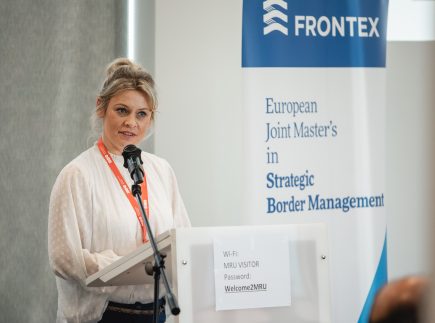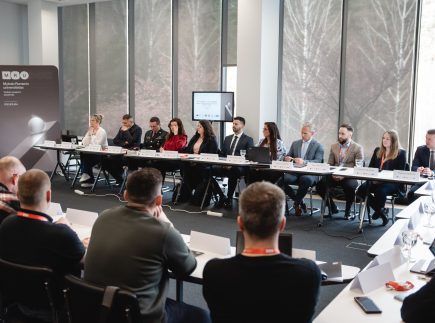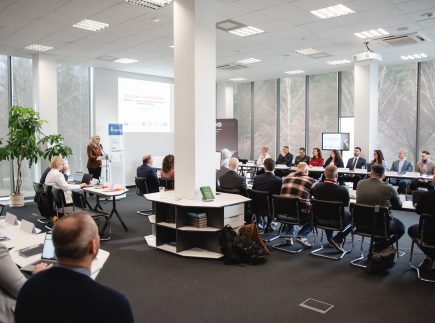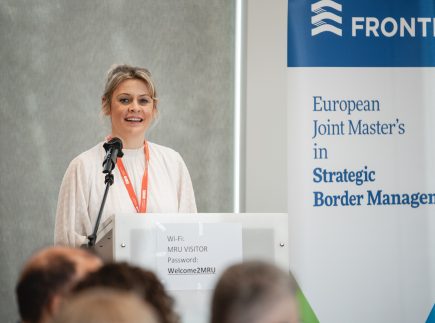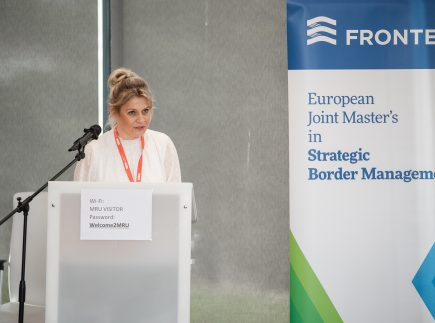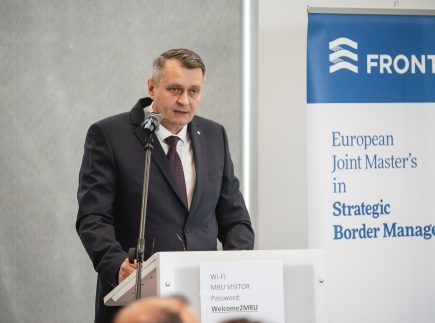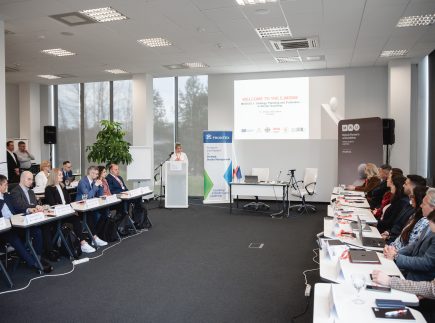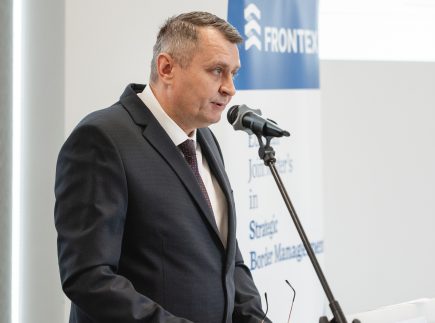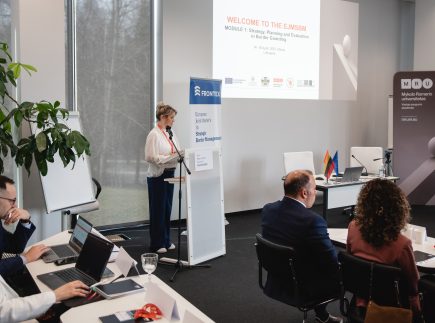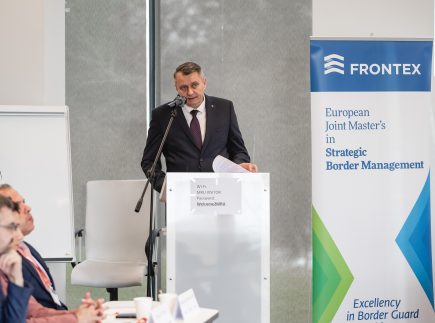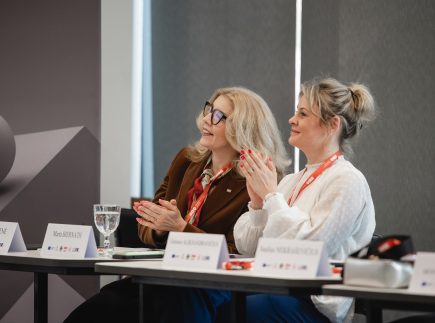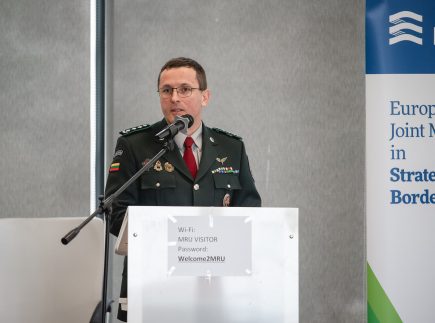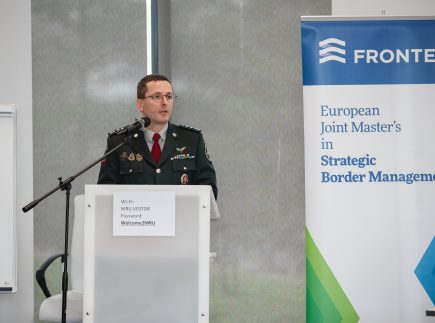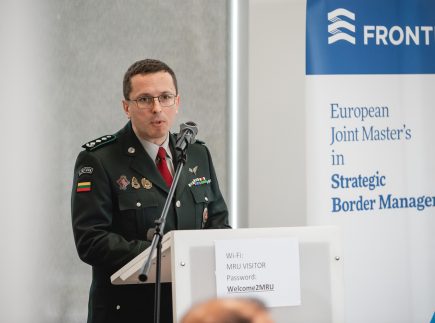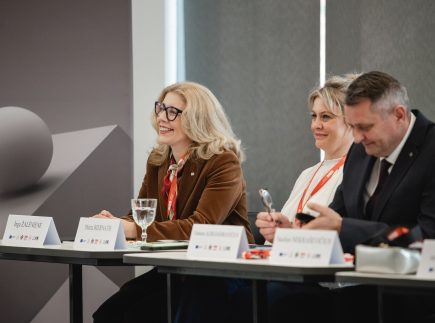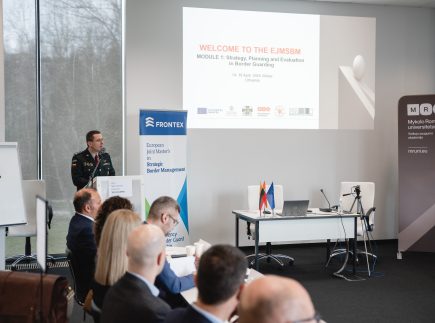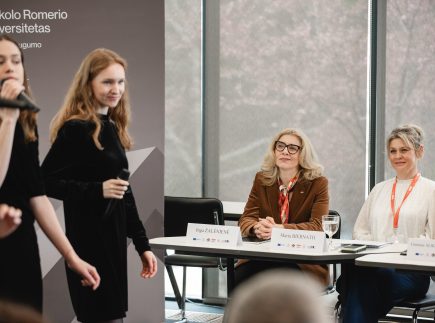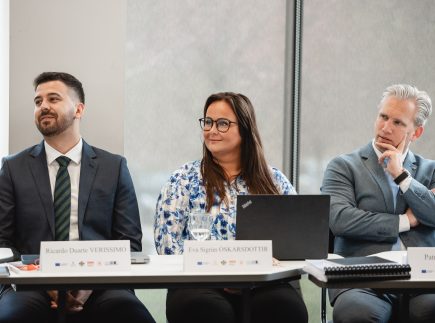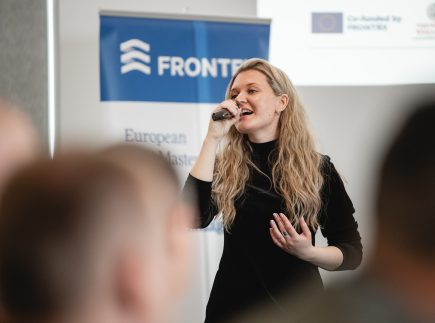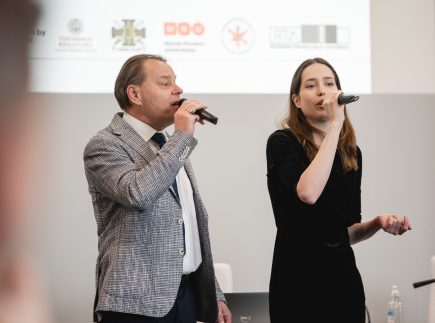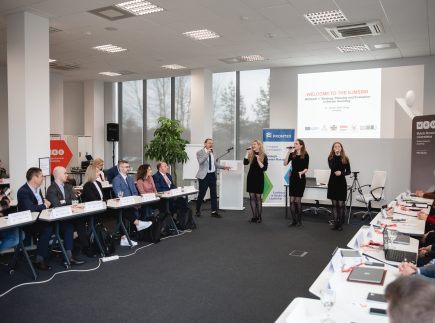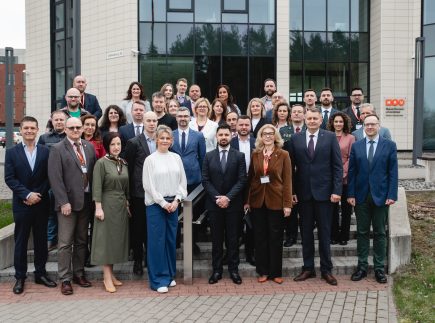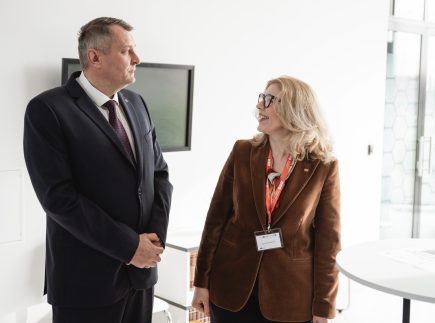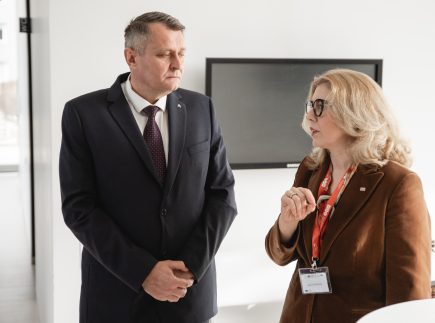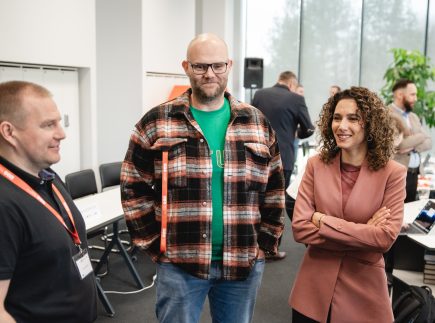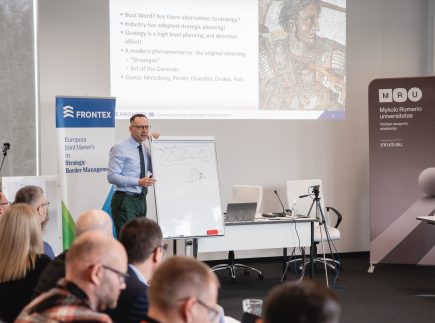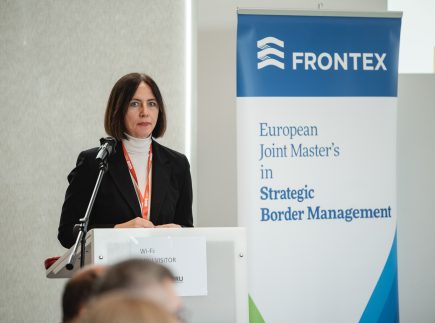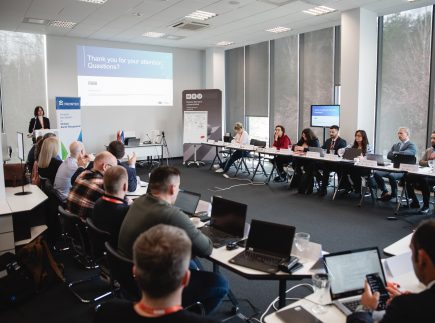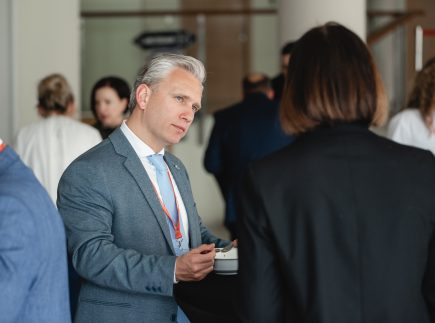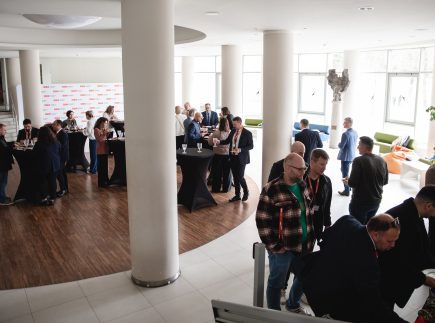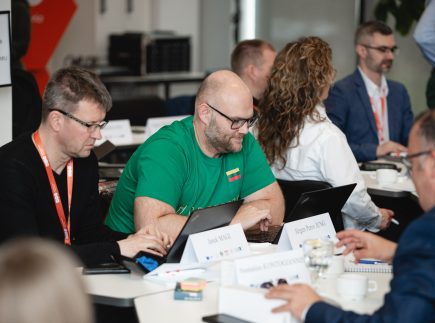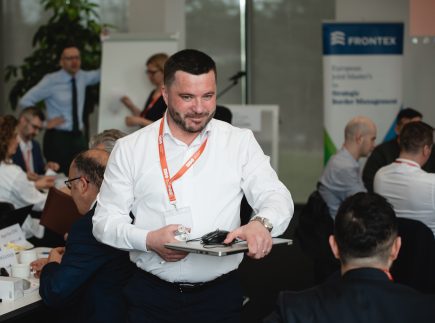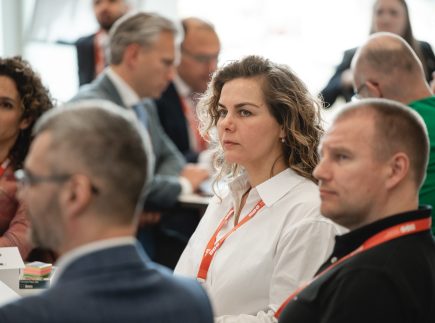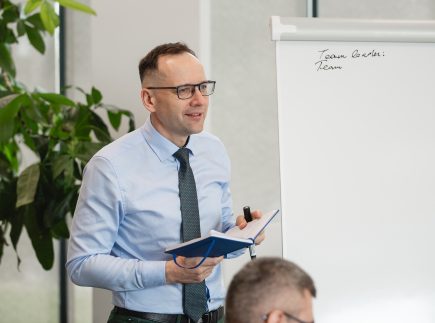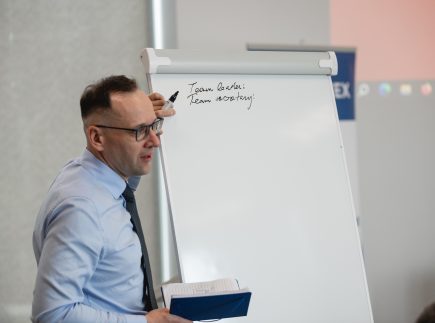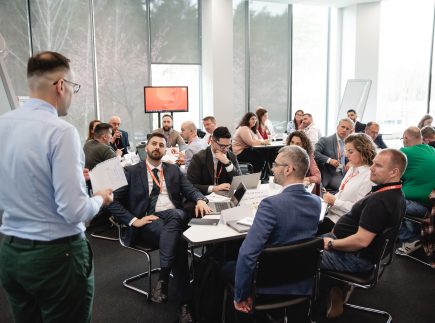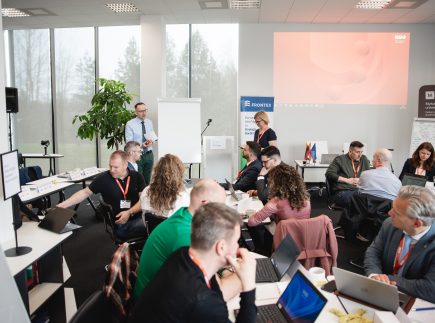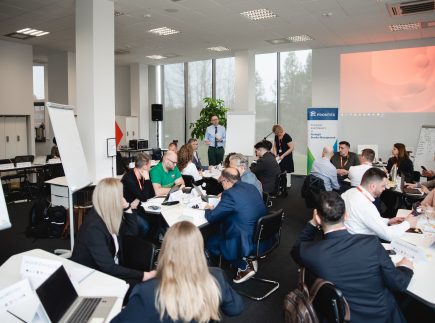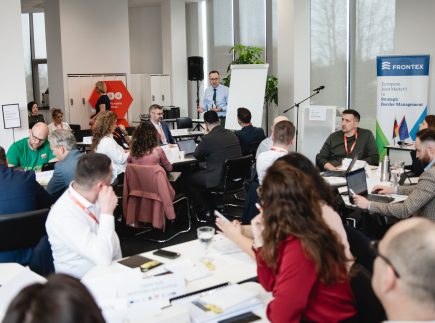
On April 14, 2025, Mykolas Romeris University (MRU) launched the European Joint Master’s in Strategic Border Management (EJMSBM) program. This new study program, implemented in cooperation with Frontex – the European Border and Coast Guard Agency – is designed to train high-level border security leaders from European Union (EU) and Schengen Associated Countries.
The EU-funded EJMSBM program aims to foster a common strategic approach to EU border and coast guard management. It combines academic knowledge, practical training, and international mobility for both students and instructors. The program is open to mid- and senior-level officers with at least three years of experience in their national border guard services.
During the opening event, MRU Rector Prof. Dr. Inga Žalėnienė emphasized that the launch of this program marks a significant milestone not only for the university but also for the wider European community:
“EU external borders symbolize our shared values and pursuit of security. Today, they stretch over 67,571 km of coastline and 14,647 km of land, bordering 21 third countries. These borders have changed throughout history, and their protection has become increasingly complex,” said Prof. Dr. Žalėnienė.
On May 17, 2024, MRU and its partners signed a cooperation agreement with Frontex, enabling the implementation of this program. In addition to MRU, the consortium includes the Netherlands Defence Academy, the University of Salamanca, Riga Technical University, and the Estonian Academy of Security Sciences. Experts and academics from Belgium, Italy, Cyprus, Croatia, Germany, Poland, Austria, and Portugal are also contributing to the program.
The MRU Rector noted that the program is designed to prepare leaders capable of responding strategically to contemporary and future challenges:
“This master's initiative is a strategic investment in a safer Europe,” Prof. Dr. Žalėnienė summarized.
Dr. Marta Biernath, Frontex Training Management Officer, also stressed the importance of the program:
“As you know, Frontex supports Member States in the field of external border management. One of our core responsibilities is to ensure that all European border guards are trained to the highest standards. This program is an excellent example of how academic and practical knowledge can come together.”
According to her, the program focuses not only on theory but also on practical skills, leadership, value-based decision-making, and readiness to operate in international environments:
“Harmonized training is especially important when officers from different countries work together in joint operations. Shared understanding, values, and methodology enable faster and more responsible decision-making in real-life situations,” Dr. Biernath emphasized.
Vice Minister of the Interior Gintaras Aliksandravičius highlighted the importance of strengthening border security competencies in the context of current threats:
“In today's world, where we face various challenges – from irregular migration to cybersecurity threats – we must have professionally trained and strategically minded border security leaders.”
He underscored Lithuania’s commitment to becoming a role model for other countries in investing in personnel training and modern competence development.
On April 14, MRU also hosted the study week for the first module of the program, titled “Strategy, Planning and Evaluation in Border Security.” The module covers topics such as strategic planning, assessment, and EU border policy. An international team of instructors and 27 students from EU and Schengen Associated Countries are participating. The program includes visits to the State Border Guard Service and EU external border crossing points with Belarus, as well as hands-on case study workshops.
Deputy Commander of the State Border Guard Service Saulius Nekraševičius welcomed the fact that the first module is being held in Lithuania:
“This is a great sign of trust in our institutions and officers. During the study week, students will visit border crossing points and carry out practical tasks, helping them deepen their understanding of the real-life situations that border guards face every day.”
According to him, practical training and case analysis contribute to building a modern model of border security officer education.
By the end of 2028, the program aims to prepare up to 100 senior border security officers – one from each EU and Schengen Associated Country.

